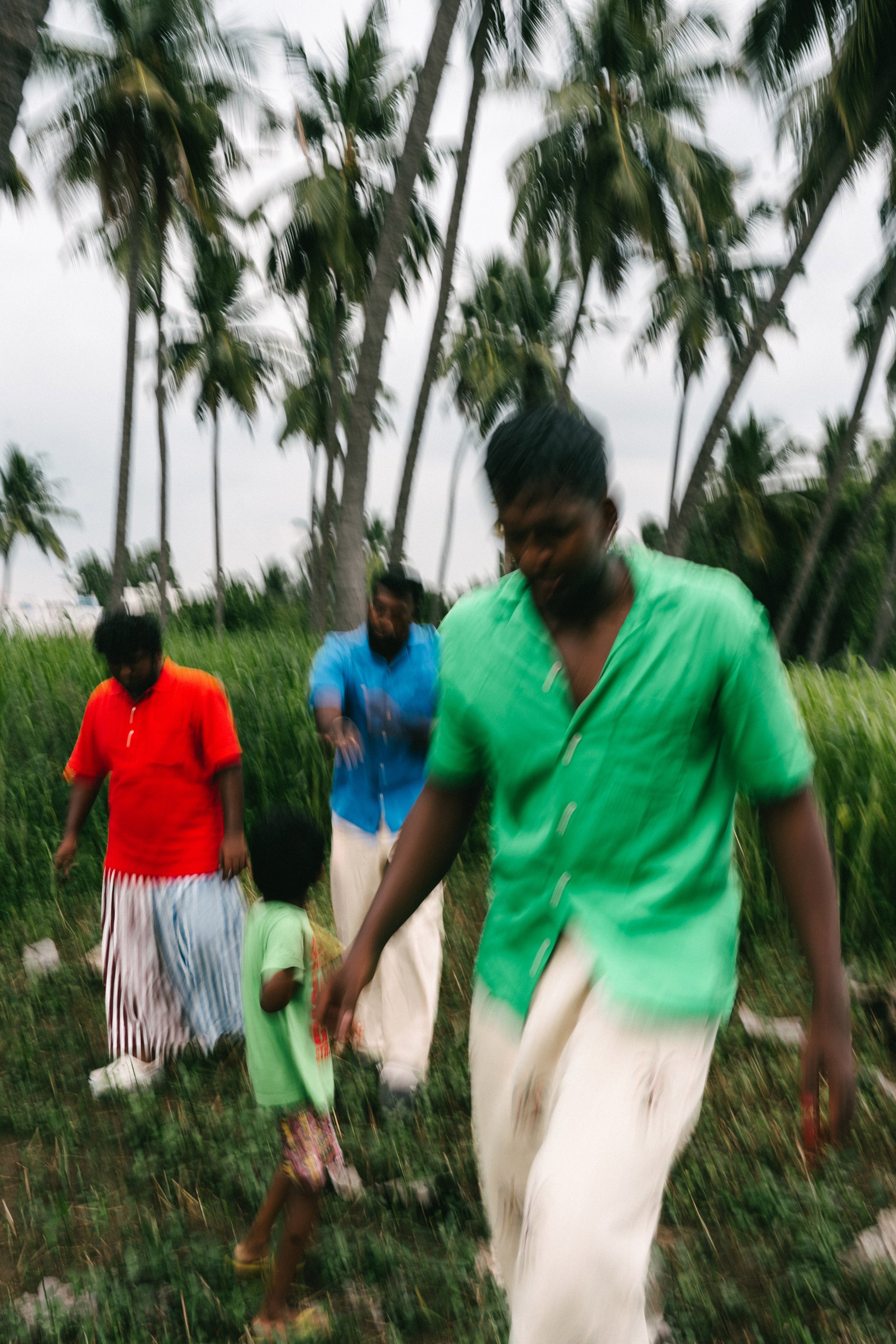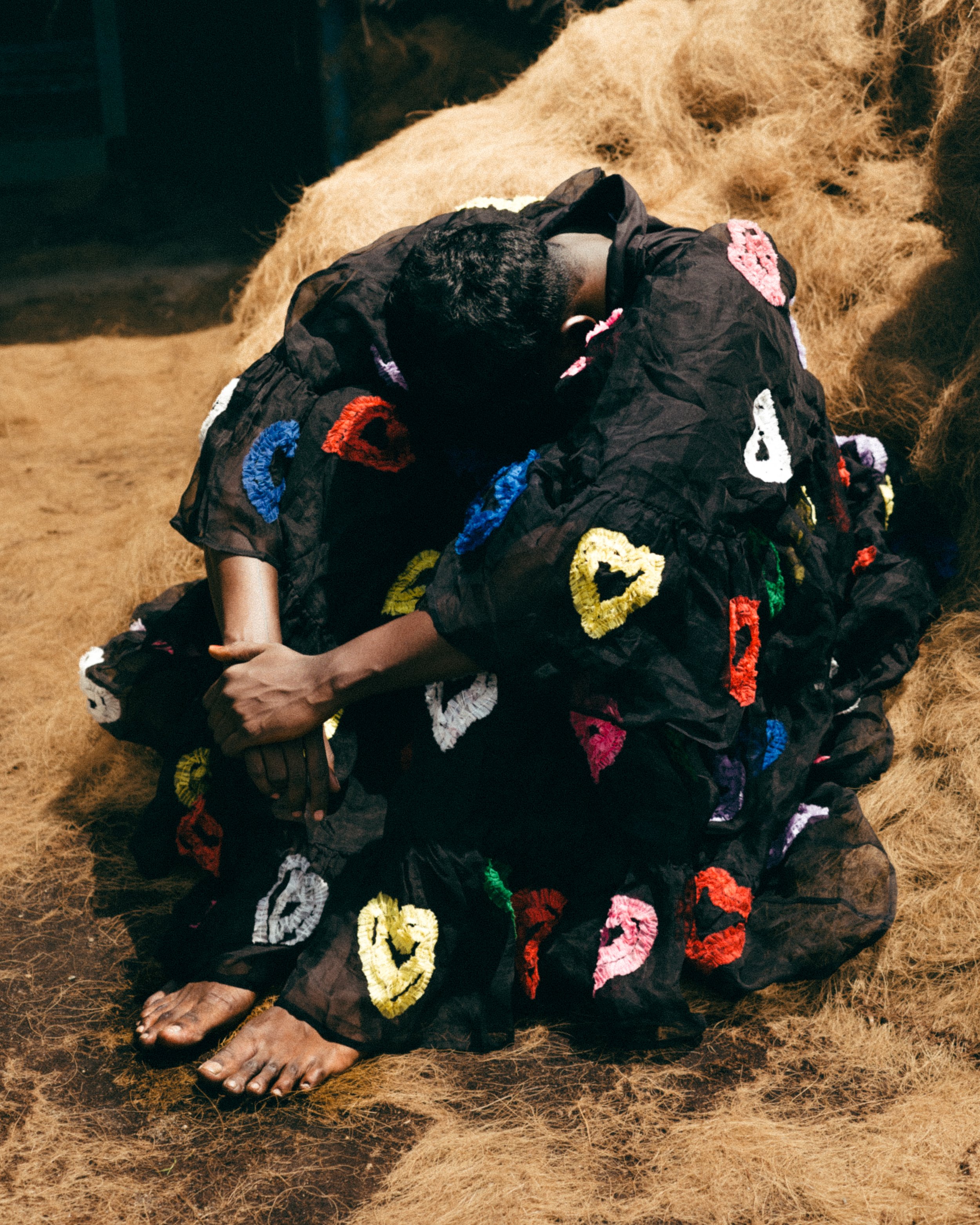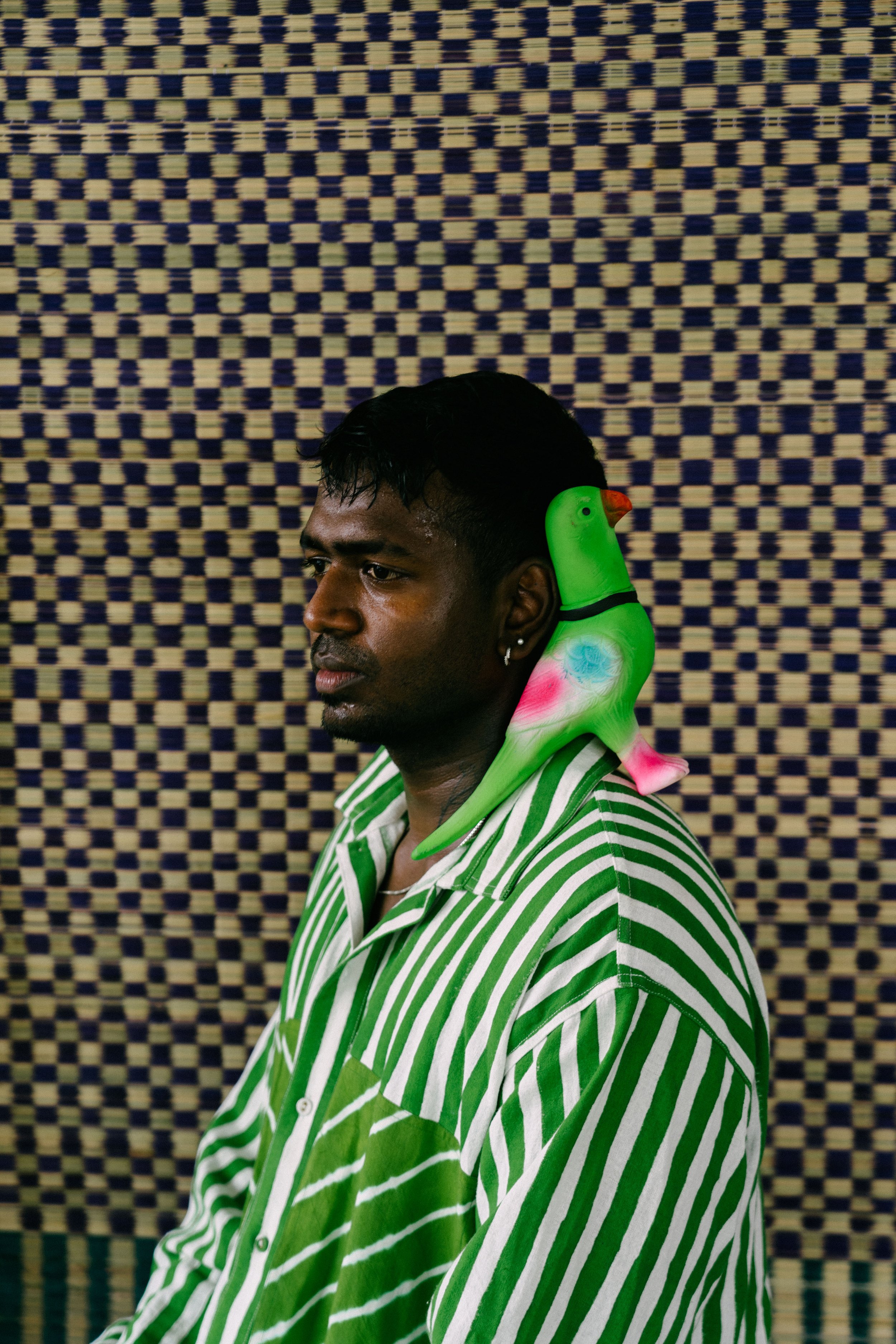How Raajadharshini’s Languid Visual Documentation of Tamil Nadu Shatters Stereotypes
Words by Zara Afthab.
Models running through the beach dressed in handwoven textiles, street vendors serving up puffed rice and shared moments of ease on the metro: Raajadharshini's meticulously shot photographs transport to her home state of Tamil Nadu. Soaked in sunlight and vibrant shades of blue, her images reject the neat categories of portraiture or documentary. Instead, these languid visual diaries are tart and powerful, life and leisure, fictional yet autobiographical.
Freshly graduated from Central Saint Martins with an MA in Fashion Image, the young photographer's portfolio of work is committed to breaking stereotypes of cultural imagery that comes out of India. Throughout our conversation, Raajadharshini spoke to the orientalising tendency many photographers who travel to South Asia fall into. Primed to capture exoticism or calamity, these photographers turn the local community into backdrops for couture. "I am always startled when I see how the West often visualises India", the photographer shares. "Even as you look inwards within the country, there's a significant tension in how South India is represented by the mainstream fashion industry, which is based in the north, that has a tendency to stereotype and flatten all our experiences".
"It's shocking to me that within fashion, people only seem to want to talk about the north of India", she continues, citing how the historic architecture and sartorial rituals of cities like Mumbai and Jaipur eclipse the rest of the subcontinent's offerings. "Growing up, I saw and appreciated the incredible textile traditions and beautiful South Indian faces all around me but barely saw them reflected in the mainstream fashion industry, whether through models on the runway, in magazines or the team working behind the scenes. That glamorous world felt closed off to me".
Raajadharshini, who turned to photography in her first year of university and then subsequently assisted several photographers, is familiar with the contradictions at the centre of the industry: "Photography is rooted in Western aesthetics, from the way it is taught across the world or the so-called perfect editorial. Even in South Asia, our reference points are not rooted in our local community. How am I supposed to relate to McQueen when that's not the world I grew up in? I can appreciate those designers and photographers, but there needs to be more dialogue on the work coming from our different cultures". In her ongoing project, Koothu, Raajadharshini confronts this notion, allowing the quotidian to take on the role of the protagonist. "There's this understanding that only certain types of imagery should be shot and documented. I wanted to break away from this; I wanted to capture everything and everyone".
Perhaps this is why Raajadharshini's photographs evoke strong feelings of intimacy and affection. "Through Koothu, I want to celebrate my cultural background and lifestyle without focusing on our marginalisation; I want to share the chaos and joy that make up my life back home and centre the beautiful people at the heart of it", she shares. This perspective manifests in close-up images of fathers embraced by their sons, in photographs of friends playing a game of cricket, and the cheeky grins on display across her subject's faces.
"I often find it hard to verbalise my thoughts and ideas. Photography allows me to express myself and facilitates me to take accountability for someone else's story. I don't really have a signature photography style, but if you look at my work, you will notice that I'm drawn to capturing human emotions so they don't feel staged", Raajadharshini explains. "I think this comes through in my imagery, especially in Koothu, as most of the people I photograph are people I know, made friends with or are part of my community".
The photo series can be read as a portrait of life in Tamil Nadu. Yet, Raajadharshini's unique style transforms the visually arresting imagery to be seen as a high fashion editorial, baked in nostalgia and punctuated by a carefully curated selection of blue bangles, madras checks and tangerine saris. Subjects, such as in an image titled 'Neighbour's Pet,' are dressed in NorBlack NorWhite's signature stripes. This ability to tie in textile traditions and stylized garments without feeling orchestrated is where Koothu shines; Raajadharashini always puts her community and their stories first. "What drew me to fashion photography was the fact that clothes and fashion are so universal. Everyone gets up and gets dressed; we're all clothed, and we're all representing ourselves through fashion. Through my practice, I want to create a platform where fashion doesn't feel alienating or exclusive but reflects the universality of clothes".







